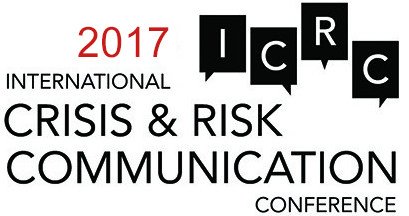
Chief Operation Officer
PERTAMINA
Indonesia
Ali Mundakir graduated as Mechanical Engineer from University of Brawijaya Malang, Indonesia in 1991. He then joined PERTAMINA as an engineer for management trainee program. After being assigned for several positions in technical operations in the field for six years, he continued his education in The University of Auckland, New Zealand and completed his Graduate Diploma in Energy Technology In 1997.
After graduating his Master of Engineering Degree (Mechanical) from the University of Auckland in 2000, he was posted in the Head Quarter of PERTAMINA as junior staff in President & CEO Office. In 2008, he assumed the position of Manager Relations and Corporate Administration of Pertamina Hulu Energi, one of the PERTAMINA subsidiary. After 3 years, he then got another assignment in another PERTAMINA subsidiary as Corporate Secretary of Pertamina Drilling Services Indonesia in 2011.
Since June 2012, he has been promoted back to PERTAMINA to assume the position of Vice President of Corporate Communication. In this current position, he manages media relationship, brand management and communication with all stakeholders.
2014
Breakout Session: Integrated Strategic Crisis Communication: A Case Study on National Program of Kerosene to LPG Conversion in Indonesia
Until 2007, Indonesia was maybe one of the few countries that still using Kerosene as domestic use for cooking. The consumer for kerosene was mostly people with low to middle income. Since the price of kerosene was subsidized by the Government of Indonesia, it put a considerably huge burden on the State Budget. The consumption of kerosene had been increasing every year. The Government of Indonesia (GoI) had to spend USD 0,7 billion in 2002 and USD 4,2 billion in 2007 to subsidy the kerosene. Considering the fact that Indonesia has been a net-Importer country for oil but still has a promising gas reserve, the GoI then launched kerosene to Liquified Petroleum Gas (LPG) conversion program on May 8th, 2007. The program was conducted by distributing 3Kg LPG canister with the stove (the packet) for free. At the same time, GoI reduced the volume of kerosene to be sold to people. More than 57 million of the packet must be distributed to millions of people across the Indonesia archipelago.
As a result, the problem that emerged was far beyond technical matter in just distributing the packet. It involved culture change issues such as the changing of the way how people cook and all relating activities. In a country where some of the people are still using fire wood for cooking, the use of LPG with its modern-look stove could be considered as “a culture shock”. Even though, socialization in using the gas stove was always done along with the distribution of the packet, some problems still persisted. Un-proper installment of the packet resulted gas leak hence caused so many houses caugh on fire. As the program progressed to cover wider regions, the number of fire incident also increased. It became worst when the incident started taking many fatalities and widely reported by media. Since the incident escalated rapidly, so the 3Kg LPG canister was then cinically called as “a melon bomb” with regard to the LPG canister colour of yellowish green. The word “melon bomb” spreaded widely in the news and social media. Phycologicaly, it created fear and people was in doubt to continue using LPG for cooking. Suddently, all the national program of conversion turned into a crisis.
Realizing of what was happening, an integrated strategic communication plan was urgently put into action. The plan was designed to restore and to manage people perception toward the safety of LPG use for cooking. In addition to media campaigns through common available channels (newspaper, TV, radio and social media), Pertamina also empowered public participation. Many communities or community based NGO was involved to give socialisation in more “direct and mingle” way. As a result, number of incident decreased and negative news faded away. The confident level of people to use LPG also restored.
The conversion program are still running until now, it has saved the government budget for subsidy about USD 10 billion, attracted 529 investors and created 38.000 jobs with total investment USD 1,9 billion. Environmentally, the program also reduced CO2 emission up to 18,1 million in 2012.


